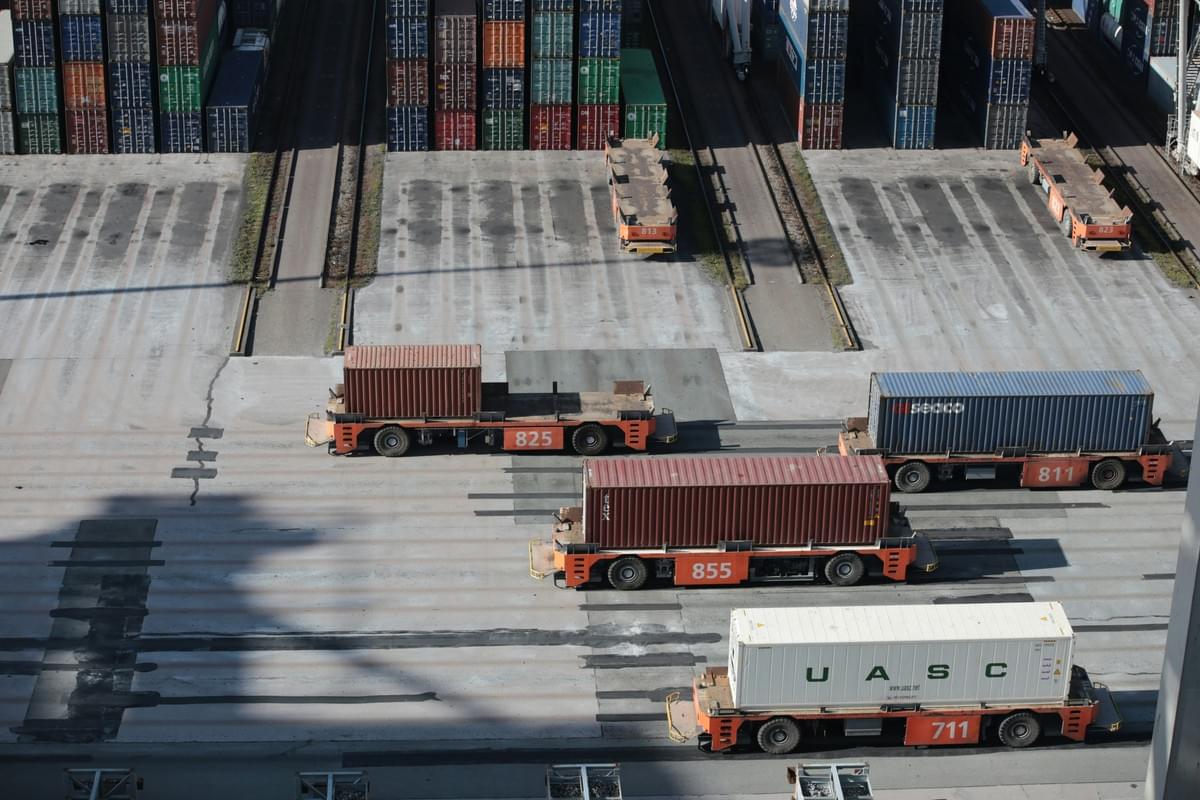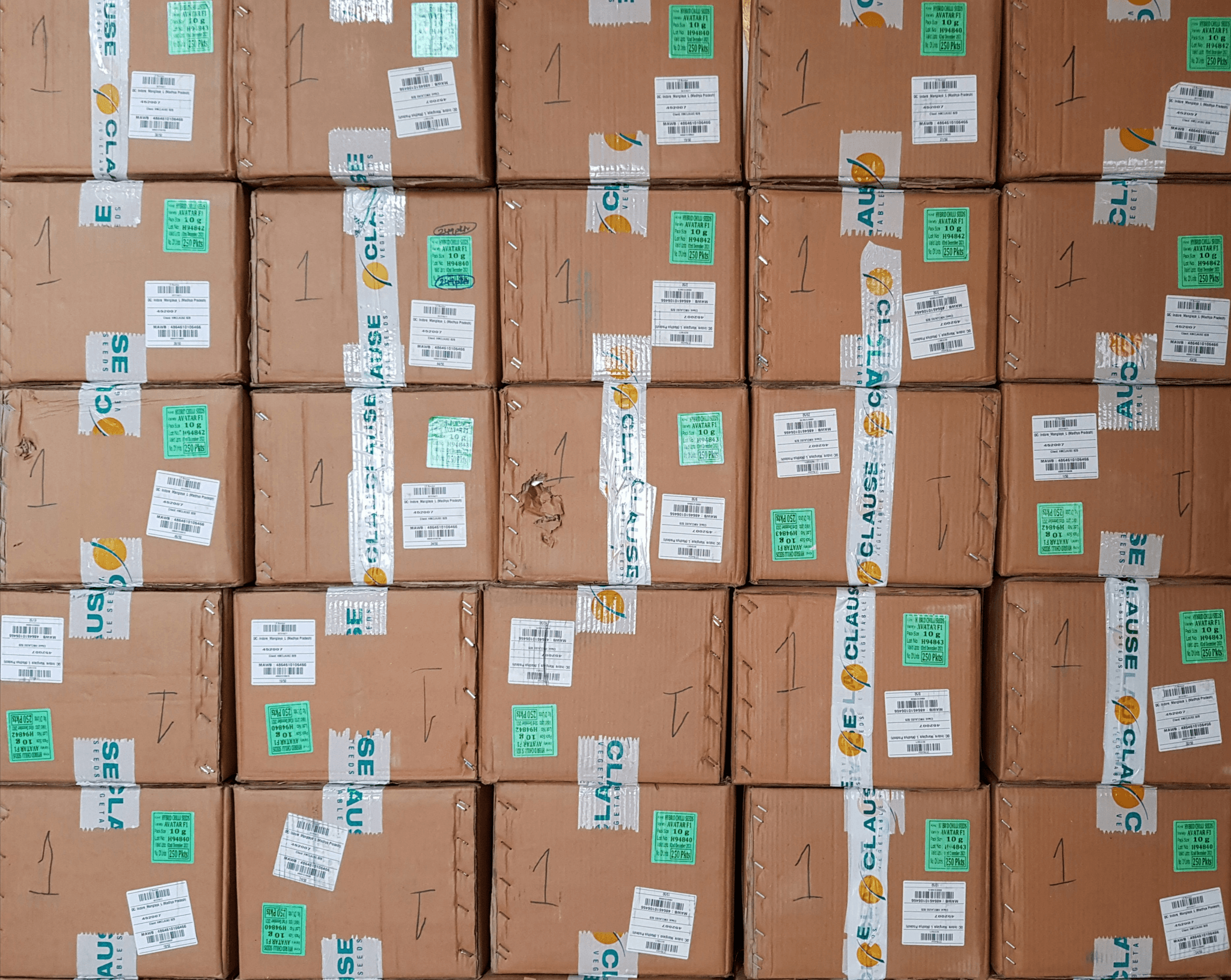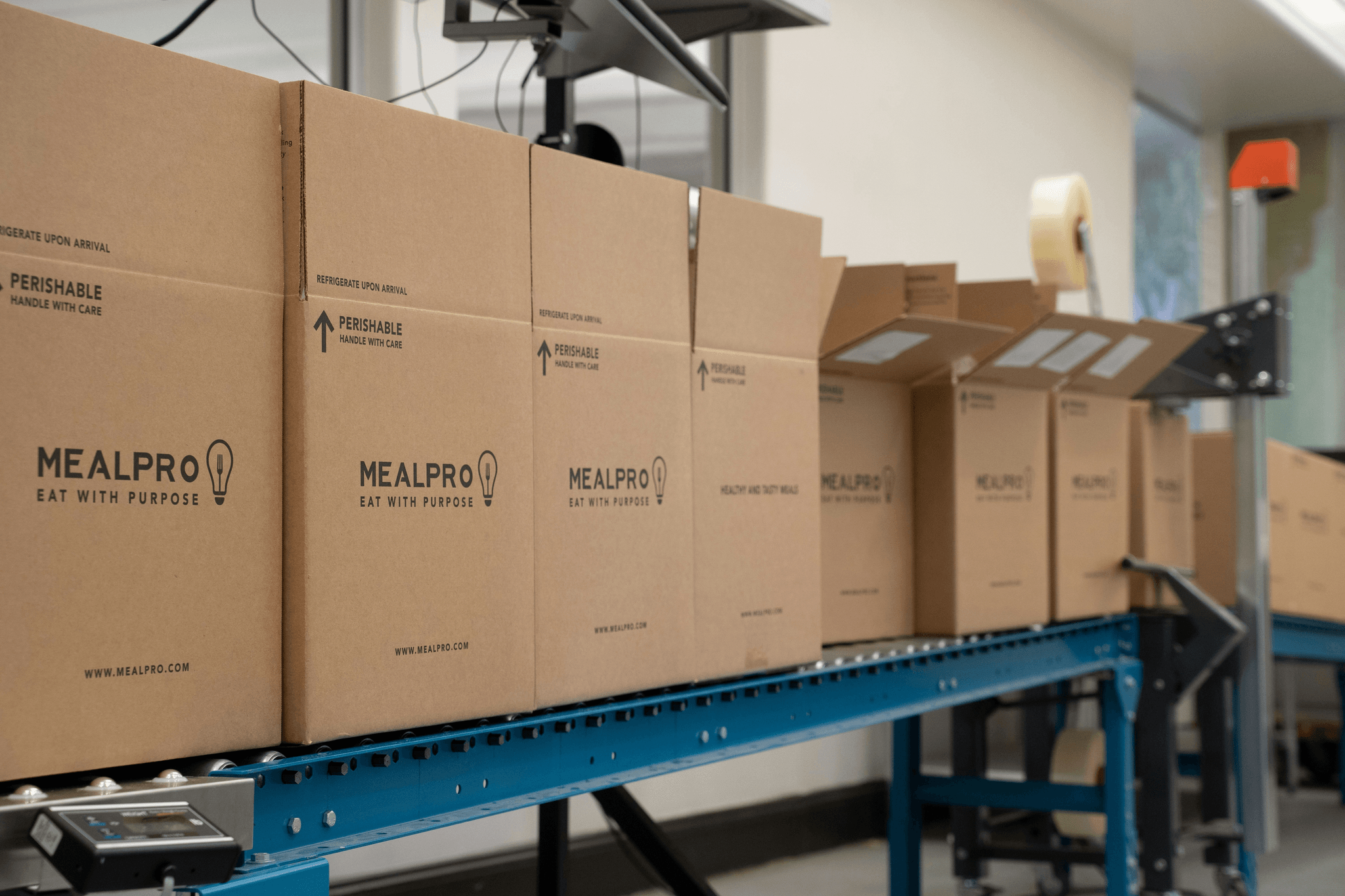Introduction

Navigating the world of international trade can often feel like a complex maze, and one critical aspect that stands out is the pre-shipment inspection procedure. This essential step ensures that products meet the required standards before they leave the supplier's facility, providing peace of mind for both importers and exporters. Understanding this process not only helps in mitigating risks but also enhances product quality assurance, making it a vital component of successful global commerce.
Understanding Pre-Shipment Inspection Importance
The importance of pre-shipment inspections cannot be overstated in today’s competitive market. These inspections serve as a safeguard against potential discrepancies that could arise during shipping, ensuring that what you ordered is precisely what you receive. By engaging with reputable pre-shipment inspection companies in China, businesses can significantly reduce the likelihood of costly mistakes and build stronger relationships with their suppliers.
Key Players in the Pre-Shipment Procedure
Several key players are involved in the pre-shipment inspection process, each contributing to its overall effectiveness. Importers rely on qualified inspectors who understand industry standards and regulations while exporters must ensure their products comply with these requirements to avoid delays or penalties. Additionally, logistics providers play a crucial role by coordinating between manufacturers and inspection companies to streamline operations throughout the pre shipment procedure.
Steps to Navigate Pre-Shipment Inspections
Navigating through pre-shipment inspections involves several essential steps that can make or break your trading experience. First, it’s vital to identify which type of inspection—such as quality control or pre-production inspection—best suits your needs before selecting an appropriate company for certification purposes. Once you've secured a reliable partner and completed necessary documentation, you'll be well on your way to obtaining your pre shipment inspection certificate efficiently.
What is Pre-Shipment Inspection?

Pre-shipment inspection (PSI) is an essential process that occurs before goods are shipped from the manufacturer to the buyer. This procedure serves as a quality control mechanism, ensuring that products meet specified standards and requirements. By engaging reputable pre-shipment inspection companies in China, importers can safeguard their investments and ensure compliance with regulations.
Defining Pre-Shipment Inspection
At its core, pre-shipment inspection involves a thorough examination of goods before they leave the production facility. This can include checking for quality, quantity, and adherence to contractual specifications. The ultimate goal is to provide buyers with confidence that their products will arrive in satisfactory condition, thereby reducing the risk of disputes or returns.
Objectives of the Pre-Shipment Procedure
The primary objectives of the pre-shipment procedure include verifying product quality and ensuring compliance with international trade standards. Additionally, it aims to identify potential issues early in the shipping process, allowing for corrective actions before shipment occurs. By achieving these objectives, both importers and exporters can minimize risks associated with defective or non-compliant goods.
Importance for Importers and Exporters
For importers, pre-shipment inspections are crucial in mitigating risks related to product quality and supplier reliability. They provide assurance that products meet expected standards before they reach international shores. For exporters, obtaining a pre-shipment inspection certificate can enhance credibility and foster trust among potential buyers by demonstrating commitment to quality assurance throughout the supply chain.
Common Types of Pre-Shipment Inspections

In the world of international trade, pre-shipment inspections play a crucial role in ensuring that products meet the required standards before they leave the supplier's premises. Various types of inspections can be conducted depending on the needs of importers and exporters, each serving a specific purpose within the pre shipment procedure. Understanding these different inspection types helps businesses choose the right pre shipment inspection companies in China to partner with for their quality assurance needs.
Quality Control Inspections
Quality control inspections are perhaps the most recognized type of pre-shipment inspection, focusing on verifying that products conform to specified quality standards and requirements. These inspections typically occur after production but before shipment, allowing for any necessary adjustments or corrections to be made prior to export. By engaging in quality control during the pre shipment procedure, companies can significantly reduce risks associated with receiving substandard goods.
During a quality control inspection, inspectors evaluate product samples against predefined criteria such as dimensions, functionality, and overall appearance. This thorough examination not only ensures compliance with contractual obligations but also helps secure a pre shipment inspection certificate that attests to product quality. Importers can rest easy knowing their products have been vetted by professionals who understand industry standards and expectations.
Pre-Production Inspections
Pre-production inspections are essential for businesses looking to ensure that materials and components meet specifications before manufacturing begins. This type of pre-shipment inspection is particularly beneficial for complex products requiring multiple parts or intricate designs. By conducting a pre-production inspection early in the process, importers can identify potential issues before they escalate into costly production delays or inferior final products.
These inspections involve assessing raw materials and components for adherence to specifications while also evaluating suppliers’ capabilities and production processes. Engaging reputable pre shipment inspection companies in China during this stage helps build confidence in supplier reliability and product integrity from day one. Ultimately, this proactive approach fosters smoother operations throughout the entire supply chain.
Container Loading Inspections
Container loading inspections serve as a final check before goods are shipped out from suppliers' facilities to ensure everything is packed correctly and securely within shipping containers. This type of inspection is vital because improper loading can lead to damages during transit or even loss of goods altogether—an outcome no importer wants to face! By incorporating container loading inspections into their logistics strategy within the pre shipment procedure, businesses can mitigate risks associated with transportation.
Inspectors evaluate how products are packed into containers, checking for proper weight distribution and securing methods that will protect items during transport. Additionally, they verify that all necessary documentation is completed accurately—ensuring compliance with shipping regulations while helping secure a valid pre shipment inspection certificate upon completion of this phase. With these safeguards in place, importers can confidently dispatch their goods knowing they've taken every precaution possible.
Finding the Right Pre-Shipment Inspection Company

Top Pre-Shipment Inspection Companies in China
When it comes to finding reputable pre-shipment inspection companies in China, a few names consistently rise to the top. Companies like SGS, Bureau Veritas, and Intertek have built solid reputations over years of service and reliability in the field of preshipment inspection. These firms offer a range of services from quality control inspections to specialized pre-production inspections that cater specifically to your needs.
Additionally, local companies such as China Inspection Pro are gaining traction due to their tailored services and competitive pricing. They understand the nuances of the Chinese market and can offer insights that larger firms might overlook. Selecting one from this list can significantly streamline your pre shipment procedure and enhance overall satisfaction with your international trade endeavors.
Evaluating Company Credentials
Once you've identified potential candidates for your pre-shipment inspections, it's crucial to evaluate their credentials thoroughly. Start by checking if they are accredited by recognized organizations such as ISO or other relevant certification bodies; this ensures they adhere to international standards during their preshipment inspection processes. Additionally, look at customer reviews and testimonials—real experiences can reveal much about an inspector's reliability and professionalism.
Don't shy away from asking for case studies or examples of previous work related specifically to your industry or product type; this will give you insight into their expertise level during the pre shipment procedure. Also, inquire about their inspectors' qualifications—well-trained professionals are key players in ensuring that you receive an accurate pre-shipment inspection certificate without any hiccups down the line.
Questions to Ask Before Hiring
Before sealing the deal with a chosen company, there are several questions worth asking that can make all the difference in your selection process for a reliable partner in preshipment inspection services. Start by asking about their experience with similar products; knowing they have handled items like yours before can ease concerns about quality assurance during inspections.
Next, inquire about how they handle discrepancies found during inspections—understanding their protocol for addressing issues is crucial for maintaining trust between you and suppliers throughout the entire process of international trade. Finally, don't forget about pricing: ask them if there are any hidden fees associated with obtaining a pre-shipment inspection certificate or additional costs related to re-inspections if needed.
The Process of Obtaining a Pre-Shipment Inspection Certificate

Navigating the pre-shipment inspection process can seem daunting, but securing a pre-shipment inspection certificate is vital for ensuring your goods meet international standards. This certificate acts as a safety net, confirming that products comply with specific regulations before they set sail. By following the right steps and understanding the requirements, you can streamline this essential part of the pre shipment procedure.
Steps to Secure a Certificate
The journey to obtaining your pre-shipment inspection certificate begins with selecting reputable pre shipment inspection companies in China that specialize in your product type. Once you've chosen a company, schedule an inspection by providing them with relevant details about your shipment and its specifications. After the inspection is conducted, you'll receive a report detailing compliance or any discrepancies found—this report is crucial for obtaining your official certificate.
Once the necessary inspections are completed, you’ll need to review and address any issues highlighted in the report before proceeding further. If all goes well and your products meet the required standards, you will be issued a pre-shipment inspection certificate that verifies compliance with both domestic and international regulations. This step not only ensures quality but also builds trust with potential buyers who rely on these certifications.
Documentation Required
To facilitate a smooth process when applying for your pre-shipment inspection certificate, certain documentation is essential. Typically, you'll need to provide purchase orders, contracts outlining product specifications, and any relevant shipping documents that detail quantities and descriptions of goods being inspected. Additionally, if you're undergoing a pre-production inspection or other types of inspections like container loading inspections, supplementary documentation may also be required.
It's important to ensure that all documents are accurate and complete since discrepancies could lead to delays in obtaining your certificate or even rejection during inspections. Having everything organized will help both you and the pre shipment inspection companies in China maintain clarity throughout the procedure. Remember to keep copies of all submitted documents for future reference; they might come in handy down the line.
Timeline for Certificate Issuance
The timeline for issuing a pre-shipment inspection certificate can vary depending on several factors including company workload and complexity of goods being inspected. Generally speaking, once you've completed all necessary steps—including scheduling inspections and submitting required documentation—you can expect to receive results within 3-7 business days after the actual inspection takes place. However, if there are issues identified during inspections or if additional documentation is needed, this timeline may extend significantly.
Being proactive by communicating clearly with your chosen inspectors can help expedite this process as well; keeping them informed about deadlines or urgent shipments will encourage timely evaluations. Ultimately though, patience is key—after all good things come to those who wait! Ensuring that everything aligns perfectly will make receiving that coveted certification worth every moment spent waiting.
Benefits of Using Pre-Shipment Inspections

When it comes to international trade, the pre-shipment procedure is not just a formality; it's a crucial step that can make or break your business dealings. By engaging reputable pre-shipment inspection companies in China, traders can significantly reduce risks associated with importing and exporting goods. These inspections serve as a safety net, ensuring that products meet quality standards before they leave the supplier's premises.
Risk Mitigation in International Trade
Risk mitigation is one of the primary benefits of implementing a pre-shipment inspection process. By identifying potential issues early on—such as incorrect specifications or quality deficiencies—importers can avoid costly disputes and delays down the line. With a reliable pre-shipment inspection certificate in hand, businesses can confidently navigate the complexities of international shipping while minimizing unexpected surprises.
Moreover, thorough inspections help to ensure compliance with local regulations and standards, which vary significantly between countries. This proactive approach not only safeguards your investment but also protects your company's reputation in foreign markets. Ultimately, risk mitigation through preshipment inspection translates to smoother transactions and enhanced customer satisfaction.
Enhancing Product Quality Assurance
Quality assurance is paramount when dealing with overseas suppliers, and that's where pre-production inspections shine bright like a diamond in the rough. These inspections allow businesses to verify product specifications before mass production begins, reducing the likelihood of receiving subpar goods. By working with leading pre-shipment inspection companies in China, importers can ensure that their products meet both their expectations and those of their customers.
A consistent focus on quality assurance leads to fewer returns and complaints from end-users, which translates into greater profitability over time. Additionally, having a solid quality control system fosters innovation within your supply chain by encouraging suppliers to maintain high standards consistently. In essence, enhancing product quality through effective preshipment inspections sets you apart from competitors who may overlook this critical step.
Building Trust with Suppliers
Trust is often cited as one of the most valuable currencies in business relationships—and for good reason! Engaging in thorough pre-shipment inspections helps build trust between importers and suppliers by demonstrating commitment to quality and transparency throughout the process. When suppliers know that their products will undergo rigorous checks before shipment, they are more likely to invest time and resources into maintaining high standards themselves.
Furthermore, obtaining a valid pre-shipment inspection certificate reinforces credibility for both parties involved in the transaction. It serves as tangible proof that due diligence was exercised during production oversight—a reassuring factor for all stakeholders involved in international trade agreements. Ultimately, building trust through effective communication and reliable preshipment inspection practices paves the way for long-lasting partnerships that benefit everyone involved.
Conclusion
Navigating the complex waters of international trade requires a solid understanding of the pre-shipment procedure. Companies that engage in import and export must prioritize pre-shipment inspections to ensure quality, compliance, and overall satisfaction with their products. By leveraging reputable pre-shipment inspection companies in China, businesses can establish a robust framework for success in global markets.
The Role of China Inspection Pro
China Inspection Pro plays a pivotal role in streamlining the pre-shipment inspection process for businesses looking to import goods from China. With extensive experience and a network of skilled inspectors, they are equipped to handle various types of inspections, including pre-production inspection and container loading inspections. By securing a pre-shipment inspection certificate from such trusted companies, importers can mitigate risks associated with product quality and compliance issues.
Key Takeaways from Pre-Shipment Inspection
Understanding the importance of pre-shipment inspections is essential for both importers and exporters aiming to thrive in competitive markets. The process not only enhances product quality assurance but also fosters transparent communication between suppliers and buyers. Engaging with reputable pre-shipment inspection companies in China can significantly reduce the likelihood of costly errors or disputes down the line.
Making Informed Decisions in Trade
Informed decision-making is crucial when navigating international trade dynamics, especially concerning the pre shipment procedure. By prioritizing thorough inspections before shipment, businesses can build trust with their suppliers while ensuring that they receive exactly what they ordered—no surprises! Ultimately, investing time and resources into obtaining a reliable pre shipment inspection certificate will pay dividends by enhancing overall operational efficiency.
